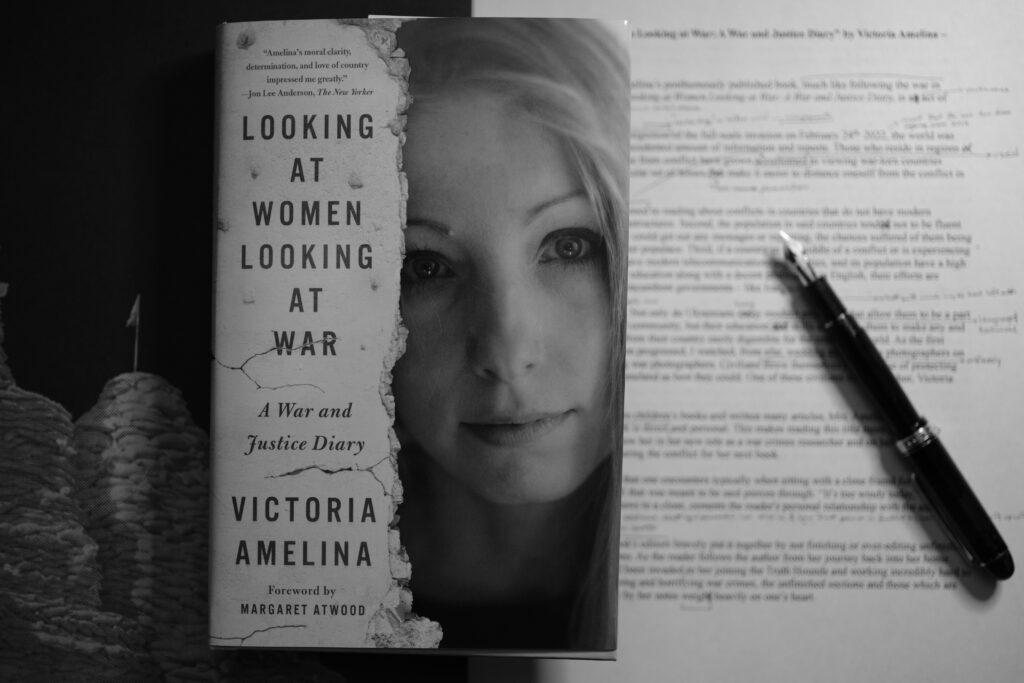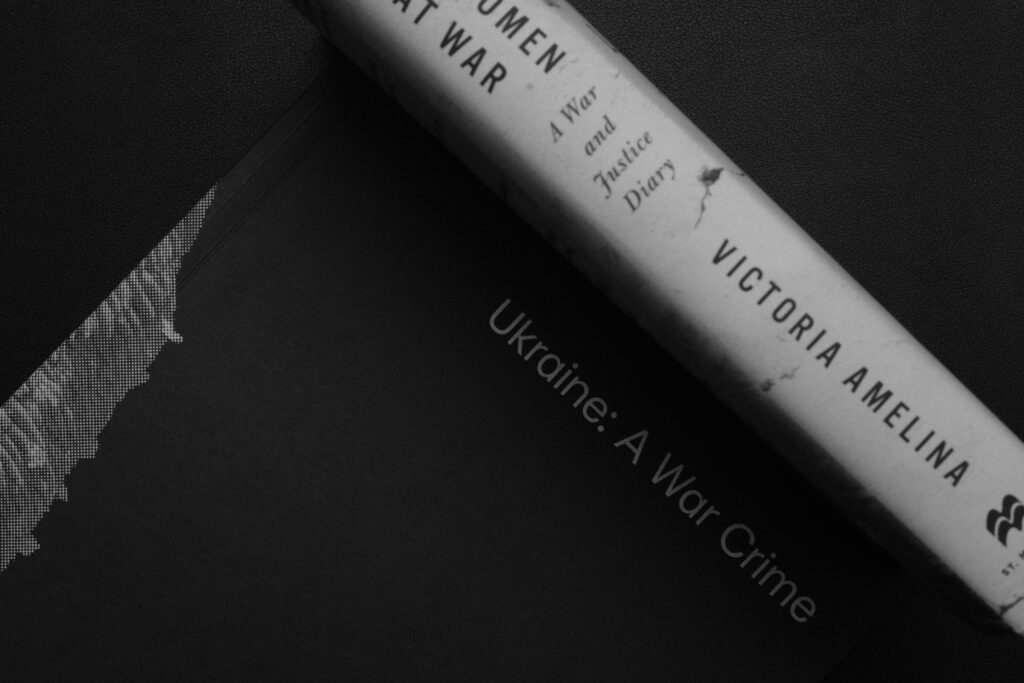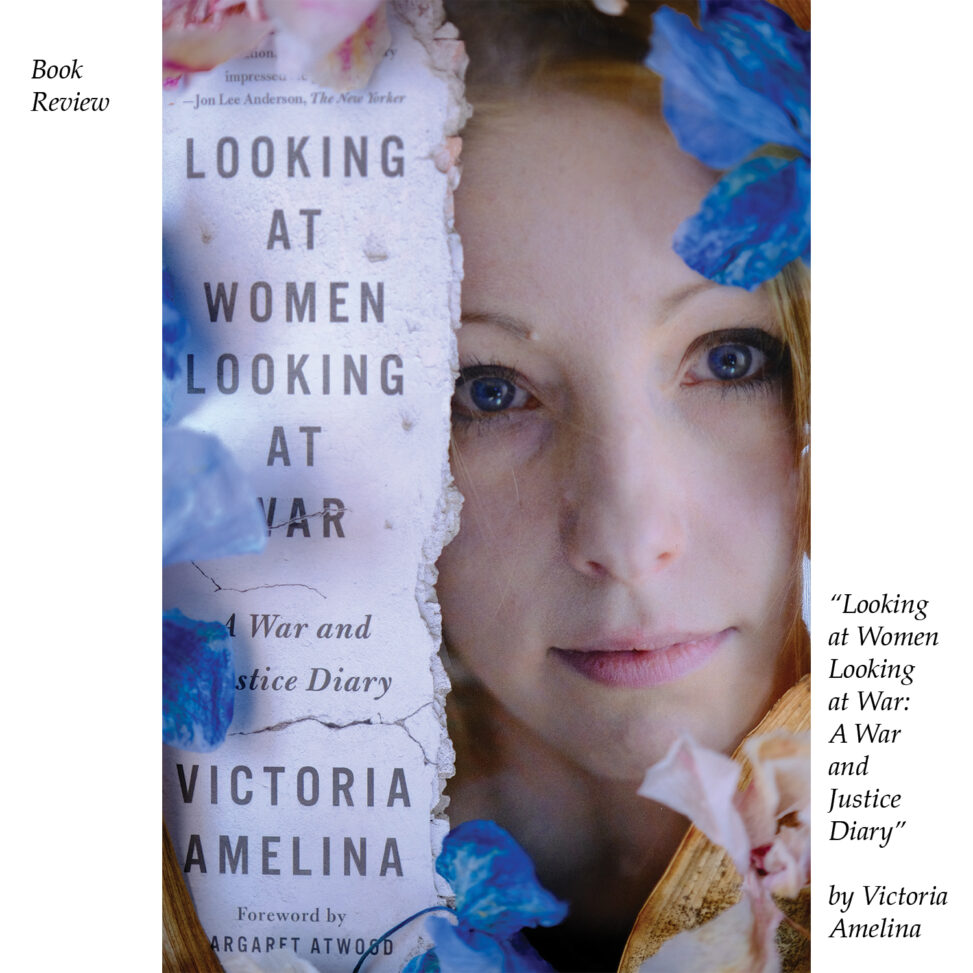1076 words
Reading Victoria Amelina’s posthumously published book, Looking at Women Looking at War: A War and Justice Diary, much like following the war in Ukraine from afar, is a continuous act of active grieving.
In the run-up to the restarting of the full-scale invasion on February 24th, 2022 (most forget that the war has been ongoing since 2014), the world was subjected to an unprecedented amount of information and reports. Those who reside in regions that are free from conflict have become used to viewing war-torn countries through a very particular set of lenses. These parameters make it easier to distance oneself from the conflict in question.
First, we are accustomed to reading about conflicts in countries that do not have modern communication infrastructures. Second, the population in said countries tend not to be fluent in English, so if they could get out any messages or reporting, the chances suffered of them being digested by the greater populace. Third, if a country in the middle of a conflict or is experiencing inner turmoil does have modern telecommunications capabilities, and its population have a high degree of secondary education along with a decent proficiency in English, their efforts are suppressed by their incumbent governments – like Iran.
Ukraine and its people are different. Not only do Ukrainians have modern amenities that allow them to be a part of the greater global community, but their education, language and technical skills also allow them to make any and all correspondence from their country easily digestible for the rest of the world. As the first weeks of the invasion progressed, I watched, from afar, wedding and lifestyle photographers on Instagram becoming war photographers. Civilians selflessly threw themselves into the cause of protecting and serving their homeland as best they could. One of these civilians was the author, Victoria Amelina.
Having authored two children’s books and written many articles, Mrs. Amelina’s prose throughout this book is direct, highly descriptive and personal. This makes reading this title more emotionally difficult as you follow her in her new role as a war crimes researcher and on her quest to highlight women during the conflict for her next book.
Short observations that one encounters typically when sitting with a close friend for a period long enough that all that was meant to be said pierces through. “It’s too windy today,” on page 257, as the book draws to a close, cements the reader’s personal relationship with the author by that point. Passages such as “I, too, come not only to mourn but to finish the story” highlight her incredibly powerful voice, which is powered by the immaculate heart to take up the task of a war crimes researcher. Taught and trained well by senior members of the Truth Hounds, a human rights group which investigates war crimes, Ms. Amelina never ceases to amaze in accomplishing their goal.

“Between research and humanity, you choose humanity” from page 168 on her notes for the chapter “Do Not Become a Torturer.”
The editors of this unfinished book bravely and lovingly assembled it by not finishing or over-editing unfinished chapters and sections. As the reader follows the author from her journey back into her home country after it had been invaded to her joining the Truth Hounds and working incredibly hard to document the ongoing and horrifying war crimes, the unfinished sections and those supplemented only by her notes weigh heavily on one’s heart.
All along, the fact that this brilliant mind and soul was senselessly killed by her injuries from a missile strike makes every passing sentence more significant and impactful. It is clearly evident that the editors who put this book together deeply cared for Ms. Amelina, for only after a few pages, the reader does as well.
The traits that made Ms. Amelina a fantastic author made her an incredible war crimes researcher. In the book’s latter half, the reader gets a glimpse into the notes she meticulously kept as she interviewed witnesses and victims. Equipped with the traits that made her a world-class writer, her astute observational skills, an eye for detail, and a profound level of empathy ensured that she was an excellent researcher in such difficult conditions.
After reading this book for the first time, I came to a sudden halt as I reached the afterword. I immediately went back to the beginning and took notes as I restarted the book to give the author, her work, and the editors the respect they deserve. Along with FotoEvidence’s Ukraine: A War Crime, this book is a must-read for all global citizens.
Ms. Amelina’s captivating writing and deeply personal connection to the Ukrainians that she covers, such as a museum director fighting back against Russian forces’ attempts to eradicate any trace of Ukrainian culture. To the lawyer starts putting together evidence of abducted children for the case that eventually led to the International Criminal Court filing an arrest warrant for Russia’s president. To the writer, Volodymyr Vakulenko, who was also killed during the war, brings the conflict and its people right to the doorsteps of one’s heart. This book contains many more examples of people who have contributed to the war effort and those who have suffered greatly, such as victims of torture and gender-based violence from the war.
Though some may find it difficult to recommend a book that will definitively break one’s heart, in this and many other cases, the heart is in need of breaking if it has not to date. I am writing this from the comfort of a warm home office in Canada. Still, I have never stopped reading and paying attention to the perils of war in Ukraine or other regions in the last few years, such as Ethiopia and the entire Sahel region. The reality is that even if citizens live in relative comfort in lands far from conflict, they are usually overwhelmed with their roles in supporting their loved ones. The least they could do is inform themselves about what is going on in the rest of the world. That way, when their leaders make false claims about the war in Ukraine, such as those in the current American administration, one can exercise their democratic right by not voting such people back into office. Remember, it was Ukraine’s drifting towards liberal democracy and a closer economic relationship with Europe which spurred the invasion to occur in the first place.
At the very least, we owe it to the beautiful souls in such war-torn regions to be informed of their struggles and to be equipped for when the opportunity arises to help.
Time of writing: 03/31/25
Note: “Looking at Women Looking at War” can be purchased directly from the publisher here.
For those who would like to read more of Victoria Amelina’s writing in English, her documentary poetry book, Svidchennya (Testimonies), will be released later this year.
You can also purchase the book Ukraine: A War Crime here.

